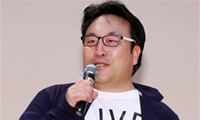▶ A LOOK FROM THE INSIDE:
After being in federal prisons for so many years, it saddens me to see more and more youths from many different ethnic groups overcrowd these prisons with lengthy sentences and with little or no sense of direction...
Nevertheless, what saddens me the most is when I look down the hallway from my prison cell, and I see a Korean youth approaching me and coming to greet me. As we introduce ourselves, there is an immediate bond between us, not because we are inmates, but rather because we are Korean and we understand the difficulty of surviving in such an environment.
After travelling several hundreds of miles away from home, family, friends and loved ones, they feel lonely and depressed, not to mention stressed out due to the amount of time that they have to serve in prison. They travel with no property or belongings, and are empty-handed when they arrive at the new prison. It’s pretty much comparable to a person whose house has been destroyed by a tornado and that person has literally nothing other than the clothes that is on his back.
Because I have experienced these feelings myself several times travelling from prison to prison, I try to comfort these new Korean youths by providing them with things that will make them feel a bit more comfortable as they adjust to their new environment. Although the prison provides all newly arrived inmates with a very limited amount of hygiene supplies, a prison uniform, and uncomfortable shoes, I accommodate them with things from the commissary (prison grocery store), like better quality hygiene supplies, sports wear clothing, slippers and other necessary items needed to survive within these prison walls.
When it comes to the meals that are served in these prisons, it is something that one must adjust to in order to live on. However, I have utilized the microwave ovens and the various food items sold in the commissary, such as instant rice, canned goods, and vegetables, to cook my meals which far exceeds the bland taste of the prison cooked food. Over the years, I have acquired a skill to make all sorts of Korean, Chinese, Mexican, Italian, and American dishes through these means, and I cook these meals daily for my fellow Korean inmates and myself.
As these Korean youths look upon me as their "hyung" (older brother), and I look upon them as my "dong-seng (younger brother), I do not abuse this relationship, like most Koreans do, just because of the fact that I am "older". I always believed that a true "hyung" earns their respect as they give it, and does not force others to respect him because of our Korean customs. I also believed that a good "hyung" must guide their "dong-seng" by sharing their knowledge and experiences to guide them in the right direction, rather than using them for their own needs.
Therefore, I try to give them guidance through my past and present experiences and give them advice about surviving within these prison walls and on the streets. I teach them to utilize this time efficiently to learn things that will help them in their futures, but most of all, to use this time to refocus their lives on God, family and loved ones. I invite them to Protestant services on Sunday hoping and praying that they will reform
their lives and become faithful men of God. I try to teach them that their lives on this earth and everything in the world will someday pass away, and that the only thing that will go on for eternity is their relationship with God.
However, this can only be achieved through discipline, continuous prayer, reading and studying the Bible, and having fellowship with other Christians. Most of all, there is the need of God’s guidance and intervention as we completely submit ourselves to Him.
Upon learning to apply this way of living, it keeps them, including myself, to live according to God’s standards and not the world’s. Thus, it enables us to overcome the pressures and temptations which has caused our downfall and the downfall of mankind.
In the meantime, many Korean youths are gradually entering the U.S. prison system, and are also being deported back to Korea for committing crimes that are deportable. Many of them are prosecuted and convicted by the city, state, and federal governments, and then sent off to INS (Immigration and Naturalization Services), where they would have to fight deportation in an immigration court.
Many of these Korean youths and their families speak little or no English, and cannot fully comprehend these strict and complex laws being charged against them. Therefore, they hire and rely on many ineffective attorneys that charge them a bundle for representing them, but do not fully represent them or defend them to the best of their ability. For those who cannot afford an attorney, the court provides these youths with a court-appointed attorney, and many of them are no better than the high-priced attorneys.
As only one who personally experiences the criminal justice system may know, the laws have become more strict, where parole is no longer available and mandatory minimums are created for many crimes. Many of these offenses are also categorized as being deportable crimes. Also, whatever the sentence may be, an inmate has to serve 85% of their time in prison before being released.
With this factor in play, zealous prosecutors use their broad discretion to indict and prosecute individuals to the stiffest penalties, not to serve in the interests of justice or society, but rather to build a reputation for themselves to increase their chances of being political candidates as judges or politicians in the near future. Their objective is to have no mercy and to win at all costs. Any attempt to challenge a prosecutor in court many times will only lead to further persecution as well as prosecution. To most prosecutors, it is about winning in court rather than serving justice.
Finally, the judges are limited in power to sentence an individual on a case by case basis, and is forced at times to sentence an individual to a mandatory minimum sentence. In cases that judges do have the power to fit the appropriate sentence to the crime, very few are motivated to give a lenient sentence due to scrutiny from the public for being soft on crime or due to their mentalities as former prosecutors. I believe if all judges and prosecutors were to live in prison for experience for a year, they wouldn’t give out 10 to 20 year sentences as they regularly do today.
In many cases in New York, Korean youths under the age of 18 are convicted by the state and then sent to federal prison for the same or alike offense, and afterwards sent off to INS to be deported back to Korea. In all aspects, you could say that it’s a "no-win" situation.
After calling home, reading a Korean newspaper, and seeing these Korean youths behind these prison walls, I have noticed that many of these Korean youths, like many other minorities that get caught up with the prison system, have become victims or political pawns of this criminal justice system that focuses more on money and politics rather than focusing on the interests of justice and society.
The fact that these U.S. prisons are getting overcrowded, the prison system no longer focuses on rehabilitation, and that the majority of inmates are made up of minorities clearly shows enough evidence that getting tough on crime has been a lost cause, biased, and expensive. Inmates are serving sentences anywhere from 10 years to life in prison and are not being rehabilitated during their incarceration. Upon release, they have no family to help them because they have all passed away, or they face the common stereotypes of being a former "convict" from society and have no opportunity to find a decent job to make ends meet.
The U.S. prison population has toppled to over 2 million people, and it continues to increase yearly. The cost to keep up with federal prisons alone costs the taxpayers billions of dollars, and recently President George Bush is requesting Congress for an increase in the budget to the amount of 4.66 billion dollars just to accommodate the overcrowded federal prison population, which is all at the taxpayer’s expense. As the average citizen works 4 hard months of the year just to cover the cost of paying taxes, part of this money is used to cover this prison bill.
In the meantime, I reach out and minister to the Korean youths within this prison system and those that are at-risk out on the streets either in person, through letters and phonecalls, or through third parties.
I try my best to reach out to those who need help, advice, or guidance. Some of these Korean youths may receive the message and advice that I give, and others may take advantage of my kindness and not reform their lives in the right direction. However, all I can do is to try to be a good "hyung", but most of all, a light unto others, so that, one day, they will also do the same to help others in need.
In retrospect, the Korean youths that are in prison may be your own children, someone you know, or a relative. Nevertheless, with the newest trend of this generation like ecstacy, computers, and gang violence, the laws are only getting stricter because the government believes that getting tougher on crime is the only solution, whereas legal scholars, professors, former judges, and former prosecutors have researched and concluded time after time that rehabilitation programs and treatment is most cost-effective and successful compared to lengthy prison sentences.
I want to clarify that although all these Korean youths and I have made mistakes and used bad judgement in our past that have led us to this road, I acknowledge that punishment is proper and necessary to correct our mistakes. However, it does not justify the fact that all prosecutors, judges, and those in government to capitalize on inmates, such as ourselves, to promote their careers, their political futures, or their ego. In many cases, the truth is distorted to make the situation worse for the inmate, and there is no mercy. In other words, the punishment we receive should fit the crime on a case by case basis, where the laws today penalize an individual with more time to a minimal participant who has sold drugs than that of a person who may have killed someone or may have committed a sex crime against a minor.
Therefore, I kindly urge you to consider these matters around you because someday, it might affect your children or someone you know. It is best to address these issues to the politicians in your district and community and lobby for reform in this criminal justice system or any other issue that needs to be addressed. If you choose not to stand up for your rights in this day and age, you will lose them one by one. So, I urge all of you to utilize your rights as the people of this country.
For any comments or questions, please write to: David Yi, Reg. No. 36535-054, P.O. Box 10, Lisbon, Ohio 44432.
Opinions expressed in this column do not necessarily reflect the views of The Korea Times.
스마터리빙
more [ 건강]
[ 건강]이제 혈관 건강도 챙기자!
[현대해운]우리 눈에 보이지 않기 때문에 혈관 건강을 챙기는 것은 결코 쉽지 않은데요. 여러분은 혈관 건강을 유지하기 위해 어떤 노력을 하시나요?
 [ 건강]
[ 건강]내 몸이 건강해지는 과일궁합
 [ 라이프]
[ 라이프]벌레야 물럿거라! 천연 해충제 만들기
 [ 건강]
[ 건강]혈압 낮추는데 좋은 식품
[현대해운]혈관 건강은 주로 노화가 진행되면서 지켜야 할 문제라고 인식되어 왔습니다. 최근 생활 패턴과 식생활의 변화로 혈관의 노화 진행이 빨라지고
사람·사람들
more많이 본 기사
- 한인 식당서 이콜라이 집단 식중독
- 관세폭풍 여파… “통관강화속 소포 파손·폐기·배송지연 속출”
- 펠로시 딸도 부시 사촌도…정치인 2세 등 내년 선거 출사표
- 특검, 김건희 ‘매관매직’ 추가기소… ‘尹 뇌물’ 수사는 경찰로
- 中, 美군수기업·경영진 무더기 제재…對대만 무기판매 보복
- 소싯적 ‘치기어린’ 주소 “굿바이”…지메일 주소변경기능 도입
- NYT “美각료·기관 성탄 메시지, 정교분리 원칙 위배 논란”
- 尹내란재판 1월16일 첫선고…특검, 체포방해 등 징역 10년 구형
- 트럼프, ‘성탄절 D-데이’ 나이지리아內 IS 공습 배경은
- 이혁재가 또.. “빌려간 3억원 안 갚아” 사기 혐의로 피소
- 무면허 건축업자 ‘계약사기’ 집중 단속
- 北노동신문 접근 쉬워진다…정부, 일반자료로 재분류키로
- ‘손흥민 감격의 첫 우승’ 올해 축구계 기적 톱8 선정 ‘선수로는 유일’
- 뼈 건강에 커피가 더 좋을까, 차가 더 좋을까?
- 이게 가능해? “여기 뛰는 건.. “ 기안84, 북극서 마지막 극한 마라톤
- 2026년 변경되는 소셜연금
- 트럼프 관세에…고급 와인 시장도 ‘휘청’
- 8시즌 뛰고 ML 역대 17위 “오타니 GOAT 될 것”, ML 역대 50인 선정
- ‘마약 혐의’ 남양유업 3세 황하나 구속… “증거인멸 우려”
- 효연, 소녀시대 수입 서열 공개 “1위 나 아냐..윤아·태연이 더 벌어”
- 쿠팡, 뉴욕증시서 성탄 휴장후 급등출발…장중 10%대↑
- VA·MD 7명 생굴 먹고 식중독…22개주 60여명 감염
- 내년 보험료 급등 우려 오바마케어 가입 감소
- 미성년자와 성관계 체조코치 체포
- 국제은값 폭등에 개인투자자들 銀투자 대거 유입
- 2025 한인사회 10대 뉴스
- 젤렌스키 “28일 트럼프와 종전안 논의…영토·원전 외 90% 완성”
- 한인 2세, 드라마 ‘런’ 주연 맡아
- 2025 미국·세계 10대 뉴스
- 곽도원, 음주운전 3년 만 복귀각..스토리제이컴퍼니 측 “미팅 했지만 계약 단계 아냐”
- ‘손흥민 vs 메시’… 2026 MLS 개막전서 세기의 맞대결 예고
- 엔비디아 200억달러 베팅… 구글 설계자·기술 빼돌려
- ICE 버지니아 구금시설 ‘포화’…수감자 역대최고
- 초강력 폭풍우 피해 속출… 3명 사망
- “출생시민권은 사기”⋯ 이민 2세대 공격 초점 맞춘 트럼프
- ‘18억불’ 잭팟 터졌다 파워볼 1등… 1
- “이재명 부친 야반도주” 주장한 전직… 2
- 조지아 역주행 사고, 한인남편 이어 임신 아내도 사망
- ‘긴급 렌트비 보조’ LA카운티 접수 시작
- 물류거점창고에 불체자 8만명 수용 추진
- 의심받는 무죄·거래되는 자백 그리고 위장된 진실
- 크리스마스 연휴… 오픈한 샤핑몰 ‘북적’
- 살림으로 뿌리내리다- 테이크루트 안미정 대표의 요리 이야기 (8)
- 린다 한 “내년 1월17일 별도 한인회연합회 만들겠다”
- 농심, ‘신라면 분식’ 매장 글로벌 확장
- ‘학자금 상환’ 안하면 임금압류
- KCCEB, 새이름 ‘마루’로 재탄생
- 뉴욕한인회, 이번에 이사장 자리 놓고 내홍 조짐
- ‘손흥민 vs 메시’ 2026 MLS 개막전서 세기의 맞대결 예고
- [한국춘추] 미국의 힘
1/5지식톡

-
 미 육군 사관학교 West Poin…
0
미 육군 사관학교 West Poin…
0https://youtu.be/SxD8cEhNV6Q연락처:wpkapca@gmail.comJohn Choi: 714-716-6414West Point 합격증을 받으셨나요?미 육군사관학교 West Point 학부모 모…
-
 ☝️해외에서도 가능한 한국어 선생님…
0
☝️해외에서도 가능한 한국어 선생님…
0이 영상 하나면 충분합니다!♥️상담신청문의♥️☝️ 문의 폭주로 '선착순 상담'만 진행합니다.☎️ : 02-6213-9094✨카카오톡ID : @GOODEDU77 (@골뱅이 꼭 붙여주셔야합니다…
-
 테슬라 자동차 시트커버 장착
0
테슬라 자동차 시트커버 장착
0테슬라 시트커버, 사놓고 아직 못 씌우셨죠?장착이 생각보다 쉽지 않습니다.20년 경력 전문가에게 맡기세요 — 깔끔하고 딱 맞게 장착해드립니다!장착비용:앞좌석: $40뒷좌석: $60앞·뒷좌석 …
-
 식당용 부탄가스
0
식당용 부탄가스
0식당용 부탄가스 홀세일 합니다 로스앤젤레스 다운타운 픽업 가능 안녕 하세요?강아지 & 고양이 모든 애완동물 / 반려동물 식품 & 모든 애완동물/반려동물 관련 제품들 전문적으로 홀세일/취급하는 회사 입니다 100% …
-
 ACSL 국제 컴퓨터 과학 대회, …
0
ACSL 국제 컴퓨터 과학 대회, …
0웹사이트 : www.eduspot.co.kr 카카오톡 상담하기 : https://pf.kakao.com/_BEQWxb블로그 : https://blog.naver.com/eduspotmain안녕하세요, 에듀스팟입니다…
케이타운 1번가
오피니언

새해 더 중요해지는 노동법 준수

연말연시, 안전하고 차분하게
 캐슬린 파커 워싱턴포스트 칼럼니스트
캐슬린 파커 워싱턴포스트 칼럼니스트 [캐슬린 파커 칼럼] 지미 라이의 마지막 희망
 유경재 나성북부교회 담임목사
유경재 나성북부교회 담임목사 [한국춘추] 미국의 힘
 전병두 서북미수필가협회 회원
전병두 서북미수필가협회 회원 [금요단상] 비자 발급
 박일근 / 한국일보 수석논설위원
박일근 / 한국일보 수석논설위원 [지평선] 스님의 주례사
 신상철 / 고려대 고고미술사학과 교수
신상철 / 고려대 고고미술사학과 교수 [미술 다시보기] 신의 모습을 닮고자 한 예술가
 스티브 강 전 한인민주당협회 회장
스티브 강 전 한인민주당협회 회장 [스티브 강 ‘인사이드 미국’] 2026 중간선거: 트럼프 지지율 하락이 말해주는 것
 김홍일 케이유니콘인베스트먼트 대표
김홍일 케이유니콘인베스트먼트 대표 [기고] 안정의 기준은 어떻게 제도가 되었나
1/3지사별 뉴스

물류거점창고에 불체자 8만명 수용 추진
도널드 트럼프 행정부가 이민자 구금·추방을 효율화하기 위해 전국 물류거점 창고에 8만명 규모의 수용시설 확보를 추진한다고 24일 워싱턴 포스트…
‘학자금 상환’ 안하면 임금압류

“온 세상에 희망·평화의 빛 스며들길”
가자지구와 우크라이나에서의 전쟁, 고립과 불평등으로 세상이 어지러운 가운데 워싱턴 지역 각급 한인교회와 성당들이 성탄절을 맞아 일제히 예배와 …
“연말은 스트레스·새해 결심은 없다”

‘손흥민 vs 메시’ 2026 MLS 개막전서 세기의 맞대결 예고
LA 풋볼클럽(LAFC)가 2026시즌 MLS 정규리그 일정을 공식 발표하며 한인 축구 팬들의 시선을 한몸에 받고 있다. LAFC는 오는 20…
[새해부터 이렇게 달라진다] 최저임금 또 오르고… 유급 병가는 더 확대

오늘 하루 이 창 열지 않음 닫기 





















































.png)


댓글 안에 당신의 성숙함도 담아 주세요.
'오늘의 한마디'는 기사에 대하여 자신의 생각을 말하고 남의 생각을 들으며 서로 다양한 의견을 나누는 공간입니다. 그러나 간혹 불건전한 내용을 올리시는 분들이 계셔서 건전한 인터넷문화 정착을 위해 아래와 같은 운영원칙을 적용합니다.
자체 모니터링을 통해 아래에 해당하는 내용이 포함된 댓글이 발견되면 예고없이 삭제 조치를 하겠습니다.
불건전한 댓글을 올리거나, 이름에 비속어 및 상대방의 불쾌감을 주는 단어를 사용, 유명인 또는 특정 일반인을 사칭하는 경우 이용에 대한 차단 제재를 받을 수 있습니다. 차단될 경우, 일주일간 댓글을 달수 없게 됩니다.
명예훼손, 개인정보 유출, 욕설 등 법률에 위반되는 댓글은 관계 법령에 의거 민형사상 처벌을 받을 수 있으니 이용에 주의를 부탁드립니다.
Close
x